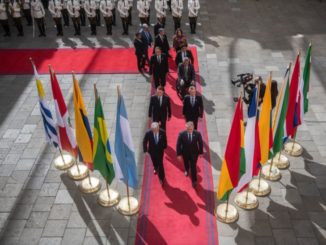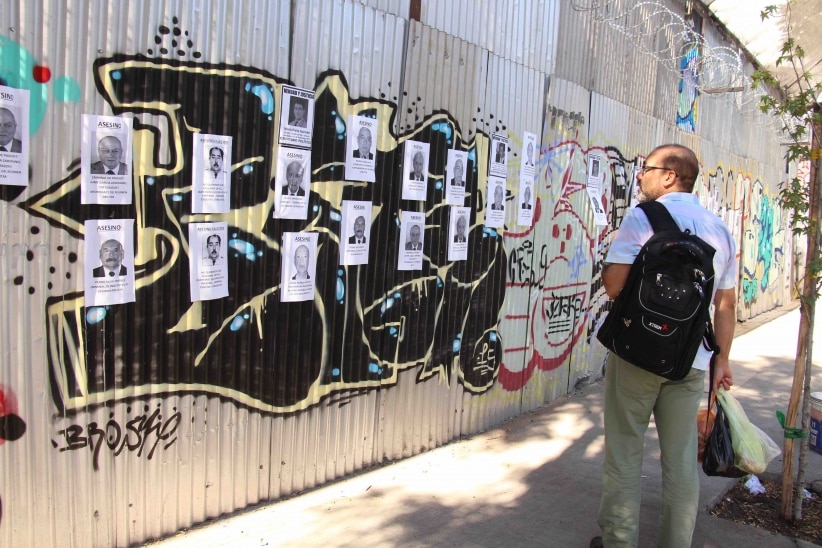
SANTIAGO – A Chilean Criminal Court Wednesday announced the acquittal of the 11 Mapuche people held over an arson attack that led to the death of an elderly couple in 2013.
The presiding judge, Jose Ignacio Rau Atria, released the defendants from the hearing in the Oral Criminal Court of Temuco due to insufficient evidence.
The elderly landowners, Werner Luchsinger and Vivianne Mackay, died while defending themselves in the arson attack which completely destroyed their home in Vilcun, some 600 kilometers (360 miles) south of the capital Santiago. The couple is survived by their son, Jorge Luchsinger MacKay.

The demonstrators were then commemorating the fifth anniversary of activist Matias Catrileo’s death.
Top Chilean court orders immediate release of Mapuche prisoners
The Mapuche, Chile’s largest indigenous group, have been accused of firebombing landowners as part of a campaign to reclaim ancestral lands seized by the state at the end of the 19th century and sold to logging companies.
Eleven Mapuche members were arrested and charged after a lengthy four-year investigation.

Ignacio Rau, the judge in the closely-watched trial in the southern city of Temuco, dismissed the charges saying there was no evidence to suggest the fire had a terrorist motive or that the act was committed by the defendants.
The group narrowly avoided a heavy prison sentence for what was considered a “terrorist attack” that would have started at a minimum of 40 years before assessing penitentiary conditions. Members have continuously claimed their innocence since the trial began in early August.
“I have no misconduct, it is the first time in 57 years that I am involved with a terrible death for pure lies,” said Francisca Linconao who was incriminated in the case.

Nine of the 11 indigenous community members have been held in pretrial detention, while the remaining two were transferred to house arrest after holding a hunger strike in protest of their imprisonment.
U.N. experts urge Chile not to use anti-terrorism law against Mapuche
Among those who will be returning home as proceedings come to a close on Nov. 14 are Jose Tralcal Coche, Luis Tralcal Quidel, Aurelio Catrilaf, Sabino Catrilaf, Juan Tralcal Quidel, Juan Segundo Tralcal Coche, Sergio Catrilaf Marilef, Eliseo Catrilaf Romero, José Cordova Transito, Francisca Linconao and Jose Peralino Huinca.
Francisca Linconao, a prominent spiritual authority, or “machi,” who served nine months of pre-trial detention, accused the public prosecutor of racism against her community. “I am not lying. I am a machi and I speak the truth,” she said outside court, maintaining that all allegations made against her were false. “It is very serious what happened with Luchsinger-Mackay.”
“Let us not continue mistreating, punishing the Mapuche poor.”
Chile’s Mapuche prisoner ends hunger strike after 118 days
Chile has been criticized by rights groups for inappropriately using anti-terrorist legislation against the Mapuche group.
In June, President Michelle Bachelet formally apologized to the Mapuche community for the “errors and horrors” committed by the Chilean state against their communities.



